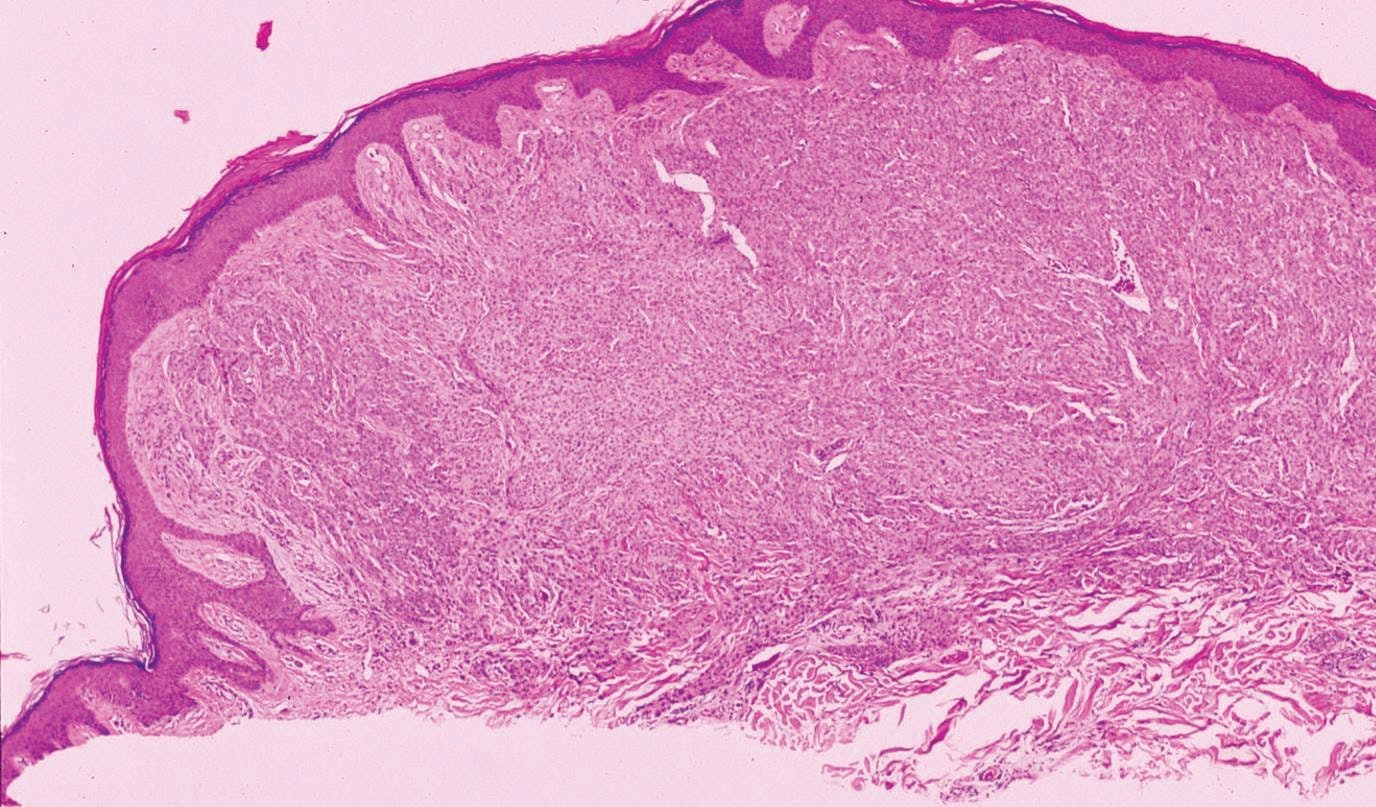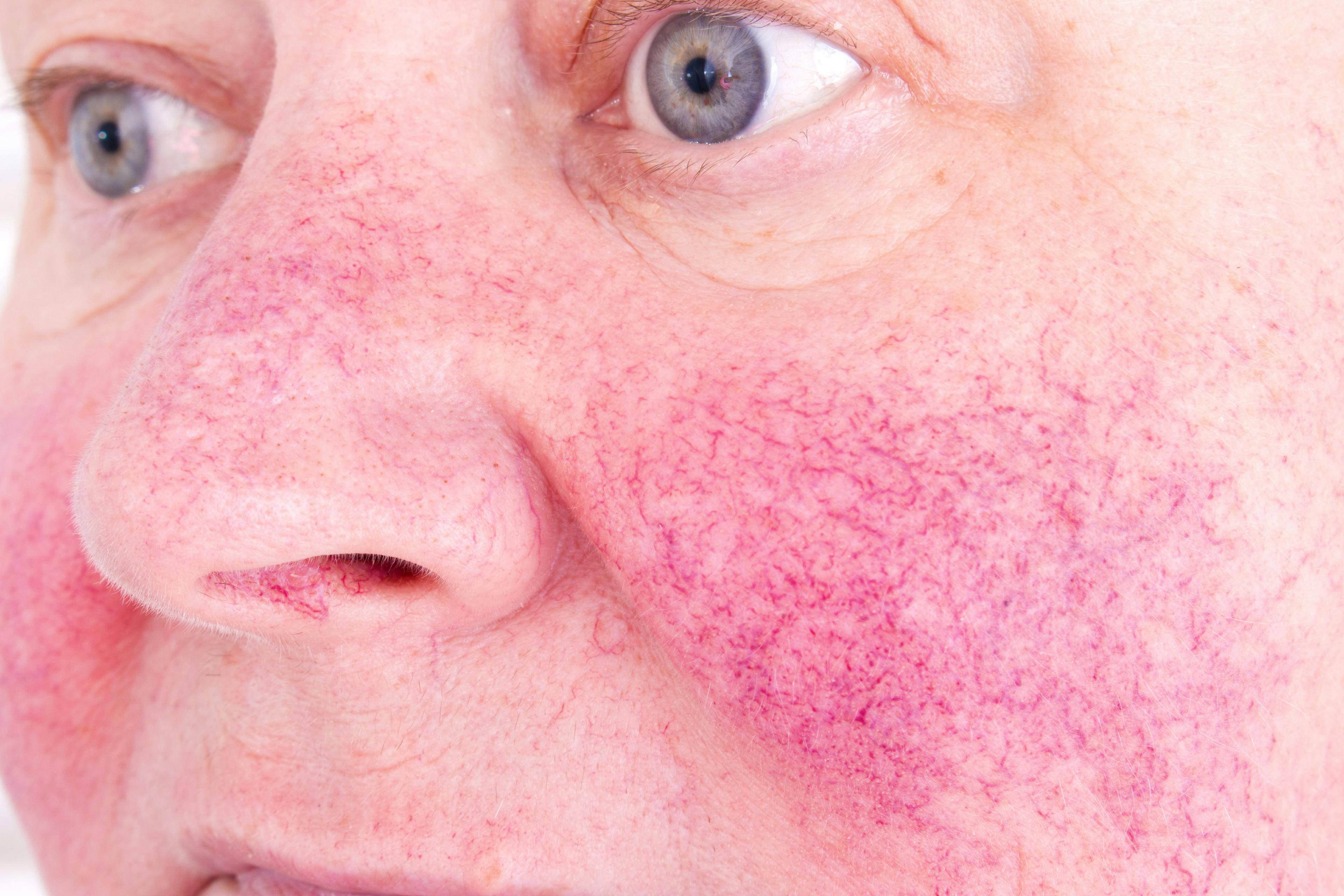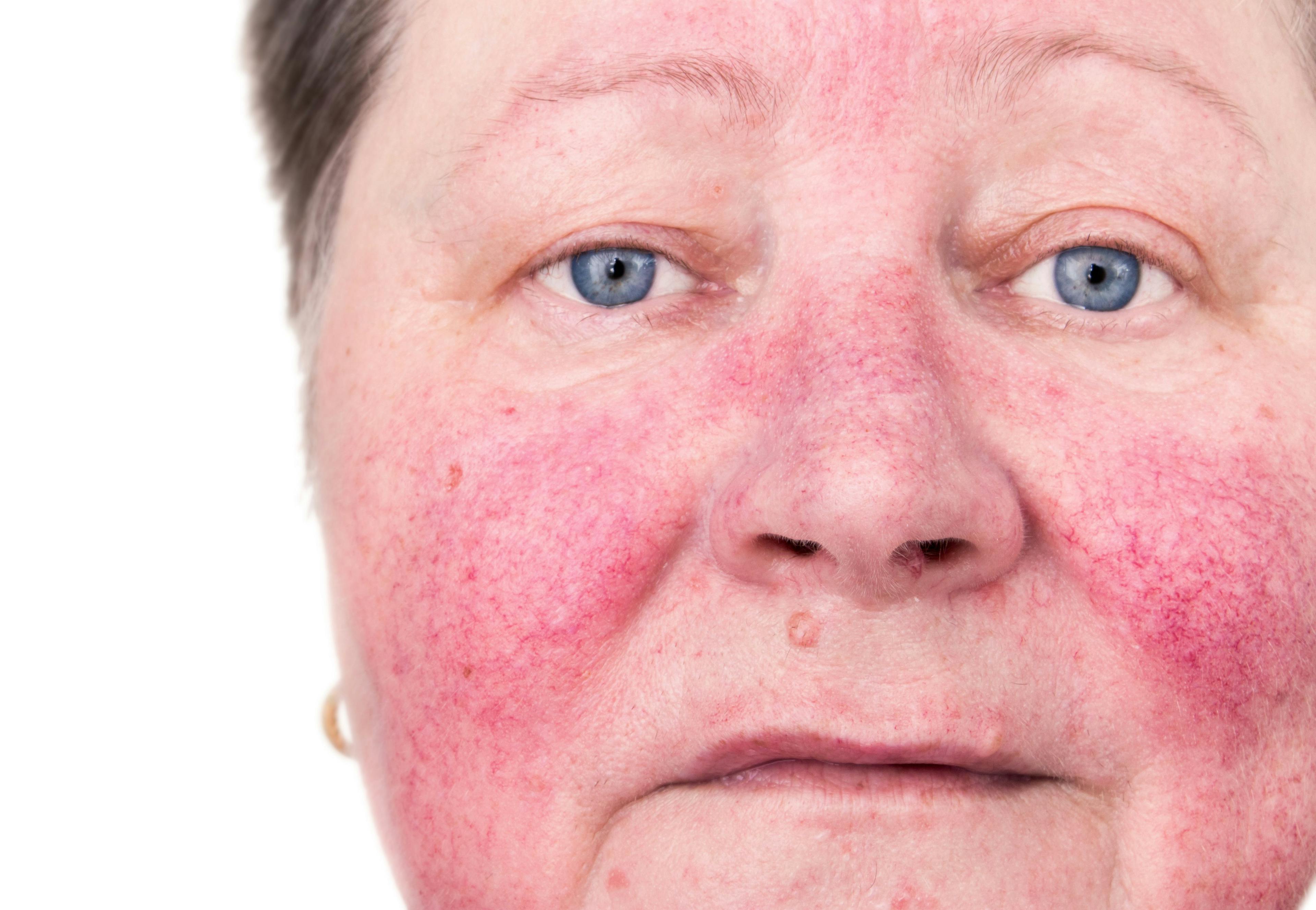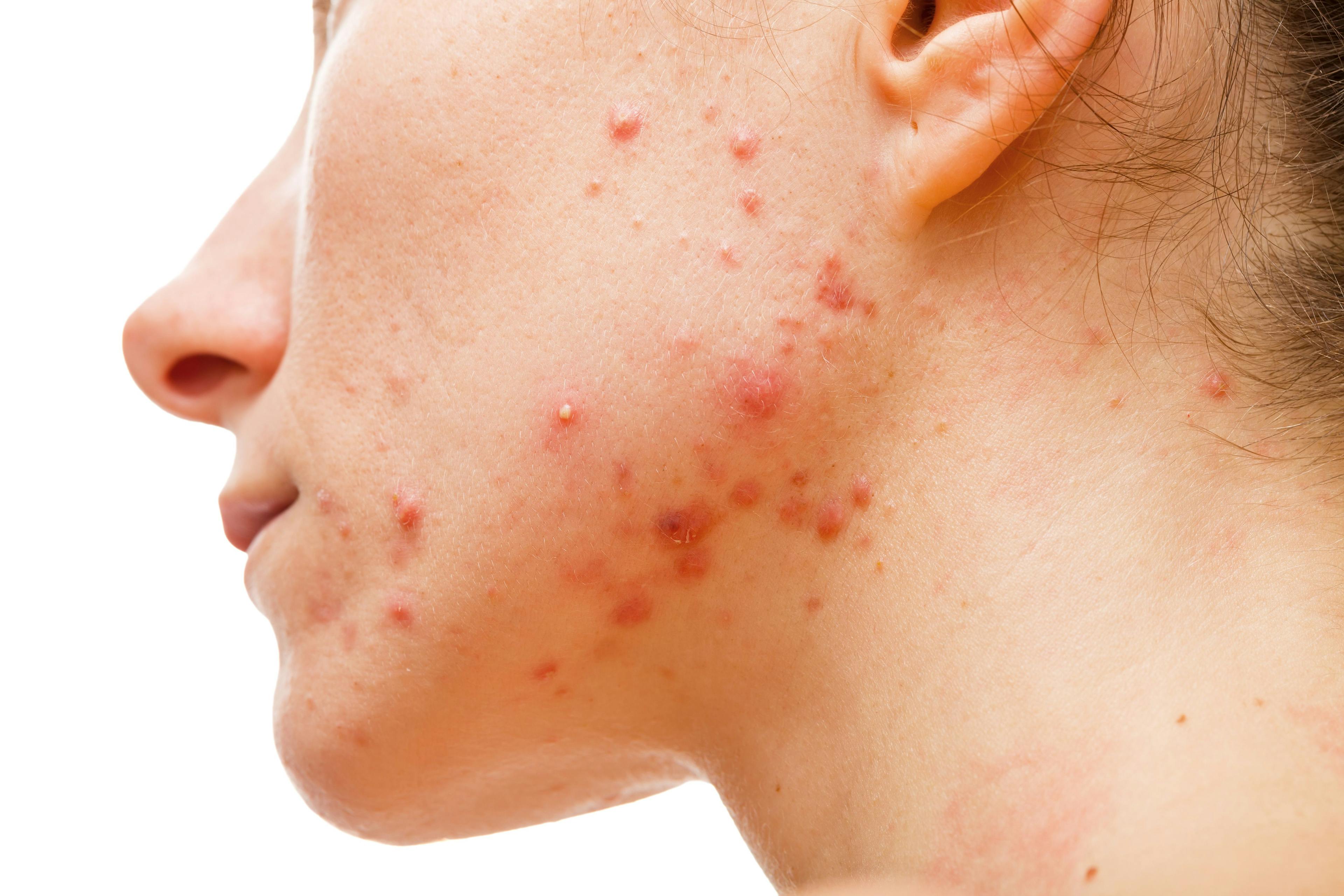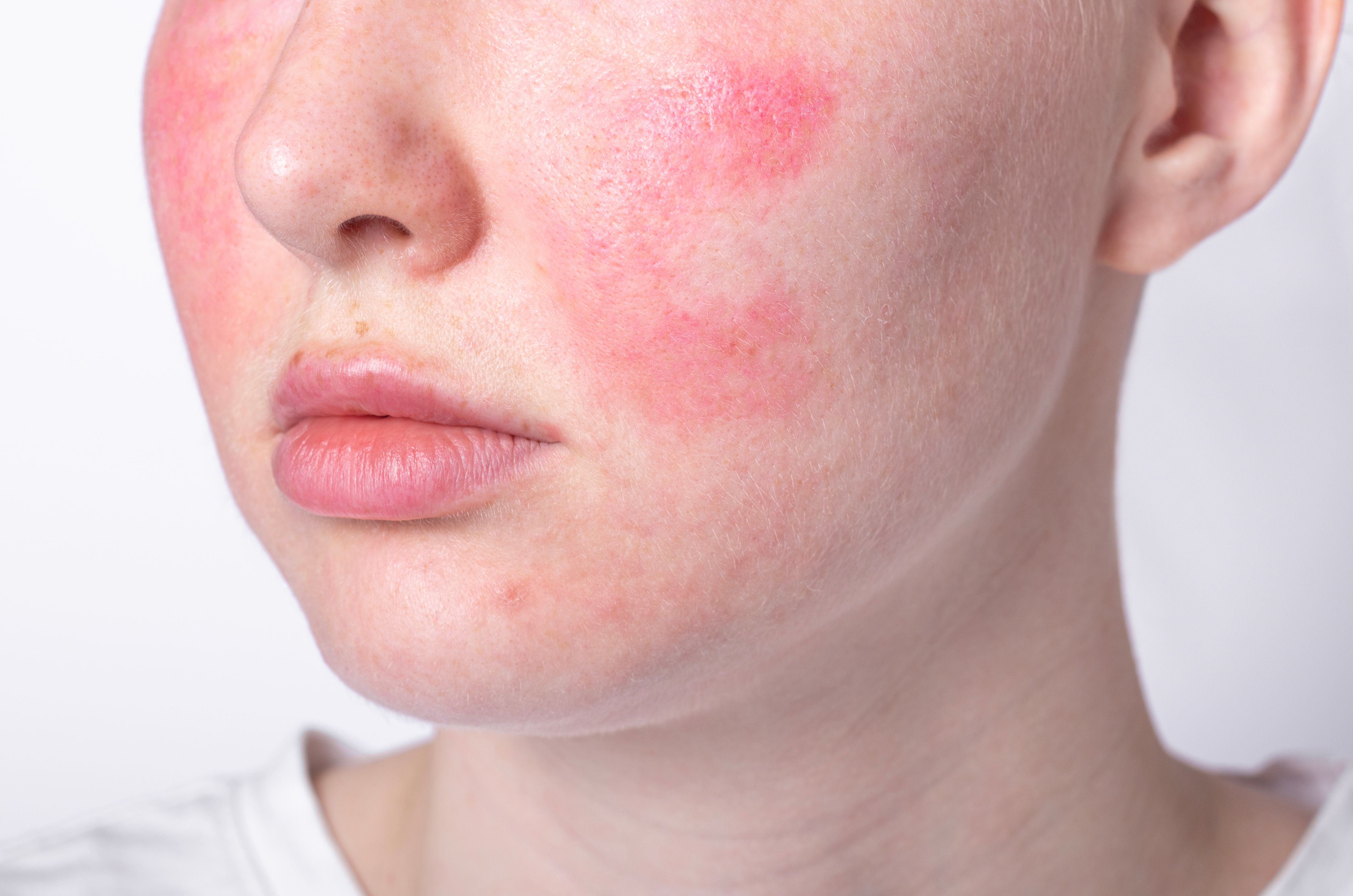- Acne
- Actinic Keratosis
- Aesthetics
- Alopecia
- Atopic Dermatitis
- Buy-and-Bill
- COVID-19
- Case-Based Roundtable
- Chronic Hand Eczema
- Drug Watch
- Eczema
- General Dermatology
- Hidradenitis Suppurativa
- Melasma
- NP and PA
- Pediatric Dermatology
- Pigmentary Disorders
- Practice Management
- Precision Medicine and Biologics
- Prurigo Nodularis
- Psoriasis
- Psoriatic Arthritis
- Rare Disease
- Rosacea
- Skin Cancer
- Vitiligo
- Wound Care
Publication
Article
Dermatology Times
Rosacea, breast cancer possibly linked
Author(s):
Patients with rosacea appear to have a significant increase in the risk of breast cancer when compared to those without this skin condition, according to a new study.
Findings further underscore the still unfolding intricate relationship between inflammation and its effect on various disease processes including cancer. (Milan Lipowski - stock.adobe.com)
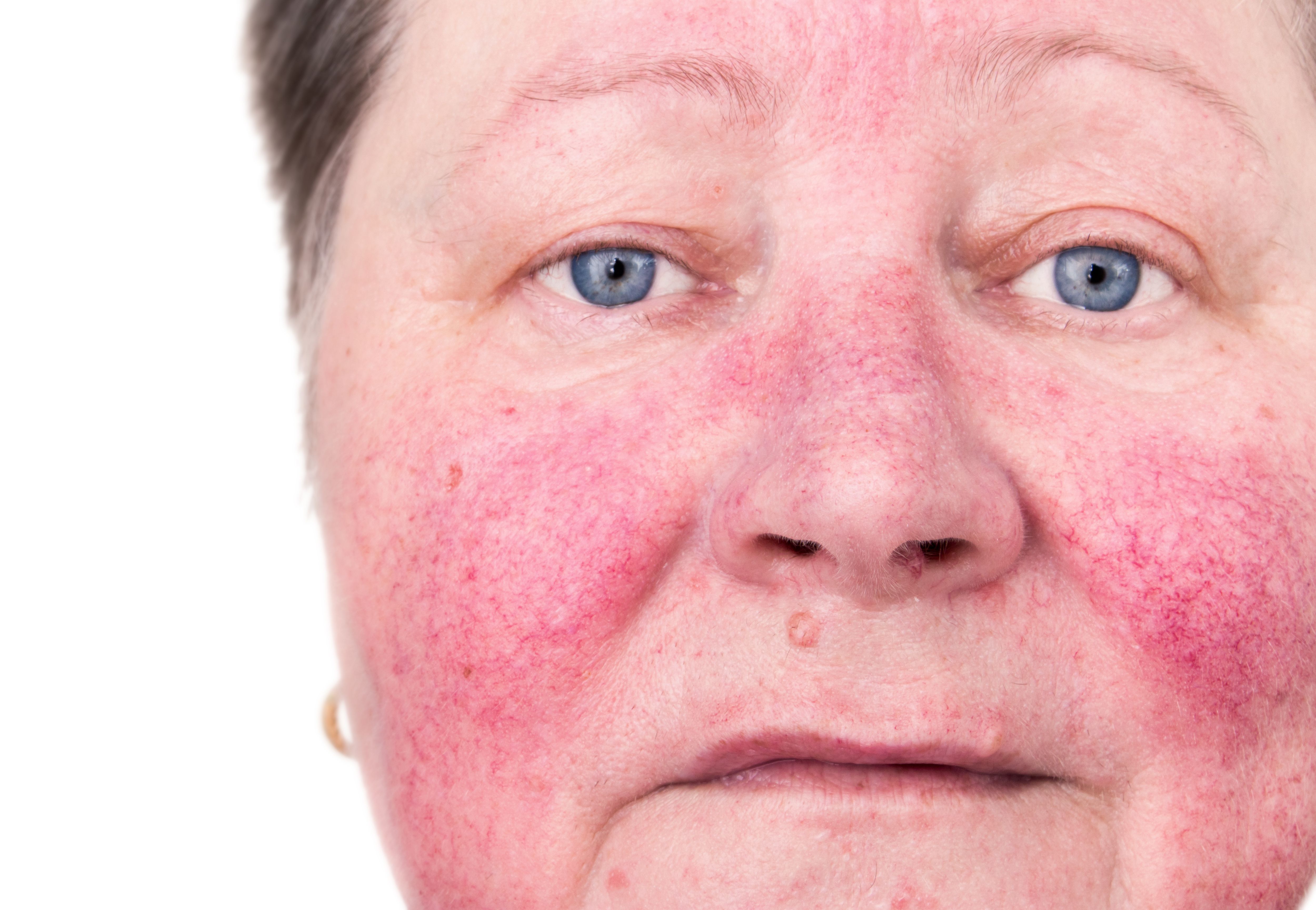
Patients with rosacea appear to have a significant increase in the risk of breast cancer when compared to those without this skin condition, according to a new study1. These sobering findings further underscore the still unfolding intricate relationship between inflammation and its effect on various disease processes including cancer, and can impact the patient consult in terms of behooving dermatologists to alert their rosacea patients of the importance of regular and more meticulous breast cancer screening exams.
RELATED: Link between rosacea and systemic inflammatory diseases
Rosacea is a chronic inflammatory disease known to be associated with a variety of diseases, one of the common denominators of which is thought to be inflammation. Although the exact pathophysiologic pathways remain unclear, many recent studies indicate that rosacea is related to an increased incidence of numerous chronic systemic diseases including gastrointestinal disorders, hypertension, cardiovascular disease, dyslipidemia and autoimmune diseases. Others have found that rosacea is associated with an increase in the risk of neurologic diseases including migraine, depression, anxiety, glioma and Parkinson’s disease. Rosacea’s relationship in the development of cancers has been less explored.
Hongfu Xie, M.D., and Yiya Zhang, M.D., and fellow colleagues from the Department of Dermatology, Xiangya Hospital, Central South University, Changsha, China, conducted a recent study analyzing the relationship between rosacea and various cancers. Included in the study were a total of 7,548 patients with confirmed internal malignancies and 8,340 cancer-free individuals, all participants 18 years of age or older. Clinical characteristics, personal history and laboratory data were recorded when patients were diagnosed with rosacea.
RELATED: New rosacea therapies show promise
Data showed that rosacea affected women more than men in both the cancer (OR = 5.61; 95% Cl, 4.05-7.77; P < 0.05) and cancer-free groups (OR = 2.11; 95% Cl, 1.60-2.79; P < 0.05). After age and sex adjustment, the researchers found that rosacea patients had an increased risk of breast cancer (OR = 5.0; 95% Cl, 4.02-6.2) and glioma (OR = 2.16; 95% Cl, 1.12-4.17), and the risk of hematologic tumors decreased (OR = 0.33; 95% Cl, 0.2-0.55) when compared with individuals without rosacea.
“Accumulating epidemiological evidence suggests that chronic inflammation is extremely important in tumor development and progression by immunosuppression. Continuous activation of inflammation-related signaling pathways, recruitment of cytokines and chemokines (IL-1, IL-6, IL-8, CCL1, CCL2), and increased production of ROS lead to massive immune cell infiltration and neovascularization, thereby promoting tumor microenvironment development. Thus, chronic inflammatory stimuli, immune cell infiltration and activation of angiogenesis involve pathophysiological processes of rosacea and cancer, suggesting a possible link between the two diseases,” wrote Hongfu Xie, MD, and colleagues, in the study recently published in The Journal of Dermatology.
Study data showed that of the 190 female breast cancer patients with rosacea, 98.95% had erythematotelangiectatic subtype or rosacea, 48.42% had chloasma and 76.31% of them were Fitzpatrick skin type III and IV. In addition, breast cancer patients with rosacea had a higher prevalence of estrogen-receptor-positive status, lower HDLs and higher LDL levels than patients with breast cancer but no rosacea.
The researchers confirmed that rosacea may be a manifestation of systemic disease on the skin, however the precise underlying mechanisms remain elusive and require further exploration.
Disclosures:
None
References:
1. Long J, Li J, Yuan X, Tang Y, Deng Z, Xu S, Zhang Y, Xie H. Potential Association Between Rosacea and Cancer: A Study in a Medical Center in Southern China. J Dermatol. 2019 Jul;46(7):570-576.
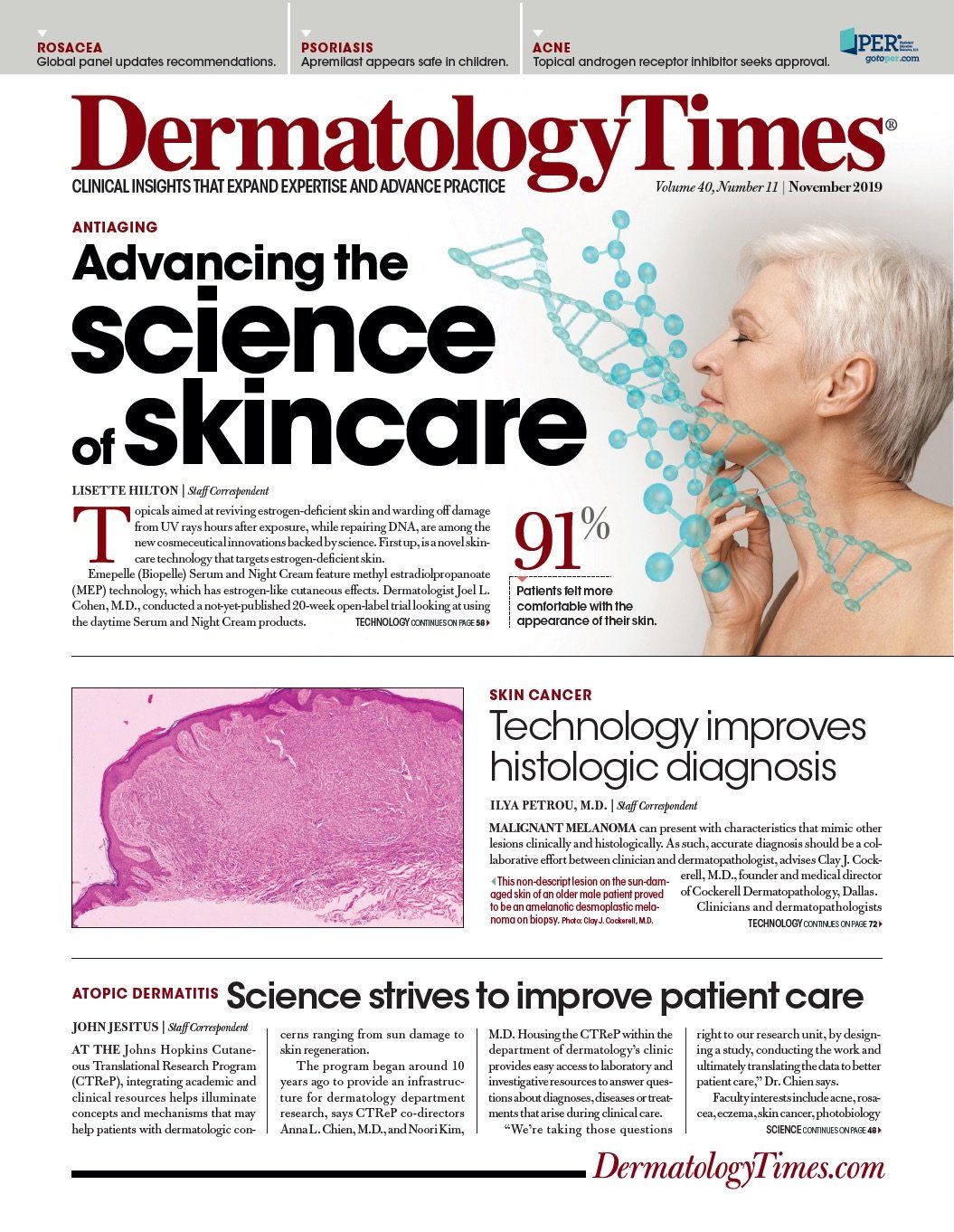
Newsletter
Like what you’re reading? Subscribe to Dermatology Times for weekly updates on therapies, innovations, and real-world practice tips.



